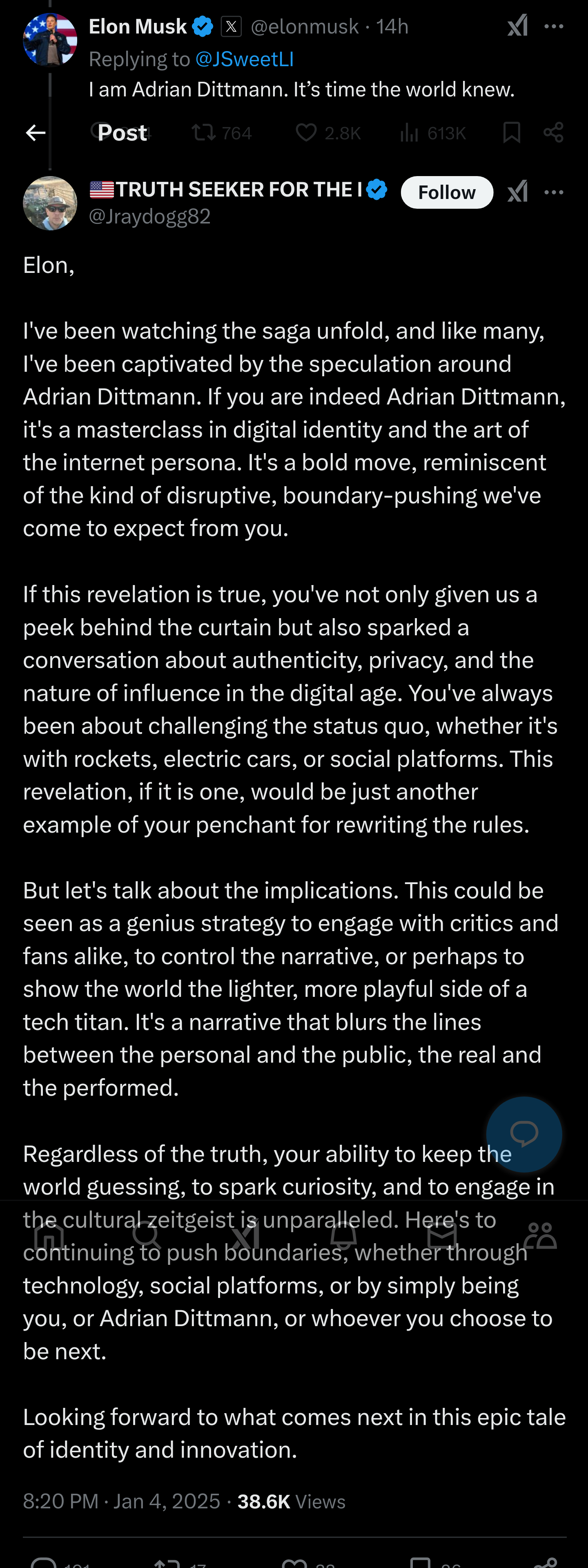
From the Greek "telos," meaning "purpose" or "end." Much rather translate this as "attraction to those who have achieved apotheosis."
Disproportionate number of billionaires in there though. They're the ones shaping policy, not voters.
Hyper-capitalist accelerationist tech bros still love him.
That's why .world is just a waiter at the table of our success.
Its time for great Mayor theory

He observed that the world cannot be analysed by isolating one of its aspects, since "the book of nature is one and indivisible", and includes the environment, life, sexuality, the family, social relations, and so forth. It follows that "the deterioration of nature is closely connected to the culture which shapes human coexistence".
That seems totally correct to me. Just not in the way they want it to be.

The problem with “weak” (low-power) poses is they make you look smaller… and feel smaller.
With your arms and elbows brought close to the body, and the shoulders and neck bending down – it practically looks like you're curling up in a shell.
So go against the norm and adopt “strong” (high-power) poses when it comes to using your phone. It takes a good amount of confidence to do… as well as accepting the fact that it'll raise some eyebrows.
Caring about this kind of thing sounds so exhausting.
Basically every war in history has been fought by teenagers and 20-somethings. That is the primary military demographic.
Also, when we control the house, senate, and presidency it is still their government somehow!
There's the tone-deaf idiocy we expect from the Democrats. Whew.
Shows the importance of not skipping range time. If someone had trained just a little harder, we could have had something extremely cool happen.
Philosoraptor
0 post score0 comment score


 ever.
ever. is looking less and less compelling. Regular people are looking for explanations and guidance. Talk to them. They want to know what has worked in the past, and what can work now. They're open to new ways of understanding the world, and we have that. Be accessible if you can.
is looking less and less compelling. Regular people are looking for explanations and guidance. Talk to them. They want to know what has worked in the past, and what can work now. They're open to new ways of understanding the world, and we have that. Be accessible if you can. is really just providing context here.
is really just providing context here.